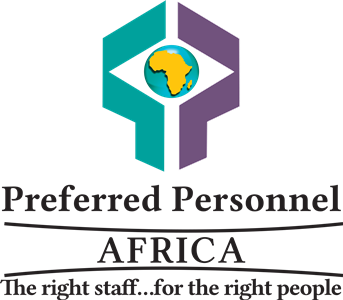By J.D. Ndungu
To say the Kenyan government is ‘feeling’ embattled would be fair; never has accountability been demanded at this scale across our society. For too long, there have been those in power who have operated with a free hand; ostracizing and plundering from the majority; serving the inherent selfish wishes of the minority. The political class is under siege and is scrambling to assemble the tools to consolidate power and we find ourselves at a point in history with several branching paths ahead of us.
At this critical juncture, it’s crucial to understand that the government must first establish effective governance and accountability before it can take on the role of a job creator. What we are seeing right now is the expression of a sentiment that has been brewing in the hearts of Kenyans for many years – enough is enough. This piece aims to contribute to the discourse surrounding Kenya’s future by outlining why our government is currently ill-equipped to solve the unemployment problem. By examining the complex interplay between government inefficiency and societal expectations, I hope to present thoughts, ideas, and questions that can further the conversation.
1. We are all dice in a complicated D&D game
The expectation that people have of their government is relatively straightforward; ensure that all people can live in a healthy and stable environment. Of course, expectation is dictated by the reality of resource, whether it be people, education, fiscal, legal, expertise etc. So how does a society at large function? A great illustration of this can be found in a game.

In the famous tabletop fantasy game, Dungeons & Dragons (D&D), players usually play the game with a minimum of 7 dice. The core function of the dice is to create outcomes for the players to navigate through the game. Each die has a different number of sides and are rolled in a variety of combinations that can deeply enrich and equally frustrate players. As a country, Kenya has several dice available to us, but it is incredibly frustrating to continue to play a game with such an important die that doesn’t work how it should. If the goal of the government is to build a healthy and stable environment, then a foundation of ideals that answers to what ‘healthy’ and ‘stable’ is in Kenya is critical. But is that what we have seen? Kenya is a productive nation, our taxes collected reflect that, and yet we seem to be frozen in place in critical areas that the government has the largest say in. We are bombarded with reports about money not being unaccounted for, projects stalling, delayed remittances, all having the common conclusion of corruption. Is that what ‘healthy and stable’ looks like?
We all have our part to play in building our country, but the essence behind #RutoMustGo is a call we all should heed – to play the game the right way.
2. An avalanche of decisions – what are Kenya’s current ‘Runout Zones’?
The Runout Zone, as defined on Wikipedia is the point in which an avalanche comes to rest once it has lost momentum. Kenya’s current state is not solely due to the current regime, rather, it is as a result of the avalanche of major and minute decisions that have been made up to this point. This cumulative effect has left us with significant issues in our ‘Runout Zones,’ such as health, education, and business environments. Corruption and inefficiencies have stifled progress, making it difficult for anything good to take root and thrive. For instance, the President recently declared the government’s intention for Kenya to reduce its total food import bill. A great initiative with major benefits to the agriculture and food processing sectors. However, the fake fertilizer scandal has a significant and direct effect on this initiative and both the initiative itself and the perpetrator of the scandal are the government and its organs. This cannot continue to be the pattern if our government wants to contribute to job creation and development in the country.
Kenya’s runout zone after one ruling party to the next is littered with the skeleton of great ideas, but equally, the bodies of those who have suffered either directly or indirectly through the callous nature of the few who sought to benefit from the works of the many.
3. There are many roles the government must play – not one of them is job creator
In the complex landscape of governance, a government must wear many hats, each representing a distinct crucial role to the functioning of society. However, balancing these roles is a difficult in the easiest of times, fraught with conflicts and challenges. Let’s consider some of the roles the government must play:
- Protector of Public Safety: Ensure citizens remain safe, whether through law enforcement, emergency management or military. The government is expected to balance security of the country while allowing individual their respective, law-abiding freedoms.
- Economic Steward: Manages economic growth and stability, balancing market regulation and social welfare with equitable wealth distribution.
- Provider of Public Services: Delivers essential services like healthcare, education, and infrastructure, prioritizing resource allocation amidst public demands and constraints.
- Arbiter of Justice: Upholds justice and rule of law, ensuring fair legal processes while navigating political pressures and systemic biases.
- Diplomat and Global Actor: Negotiates international treaties and alliances, balancing national interests with global responsibilities and diplomatic relations.
Looking at the above roles, how would you rate the current and previous government on a scale of 1-10? More importantly, how do we feel as a country on our government’s ability to perform any of the above roles with the past few years and more specifically, the past month in mind? If the government was able to successfully execute the roles listed above, a natural by-product would be a stable environment where businesses can grow, jobs are created organically, and tax revenues grow as a direct result of the productivity of businesses and entrepreneurs in this environment. The result of a government that has not done the work to successfully perform the roles above, that then tries to pursue a role of job creator, is clear in the current controversy surrounding the Affordable Housing Levy Act.
It would be hard to find anyone that isn’t a part of the current government who actively advocates for the continued implementation of the levy. Transparency and accountability around the Act would have gone a long way to assuage concerned parties and even dispel the many myths that surround the Act. However, the cases against the Act continue to be lodged and pile up, with the delays in providing judgements on those cases only further entrenching the positions of its various stakeholders.
It’s a marathon not a sprint
Good governance is as a direct result of repeated efforts made by all stakeholders towards the greater good. Eva Moskowitz, CEO of the Success Academy Charter, has a great quote that captures the essence of what these repeated efforts result in – excellence.
‘Excellence is the accumulation of hundreds of minute decisions; it is execution at the most granular level. Once you accept the idea that you should give in to things that make no sense because other people do those things and you want to appear reasonable, you are on a path towards mediocrity.’
Kenya is a country with boundless potential but languishes in mediocrity. Although I can point out the ills of our government, I recognize that we have fingers pointing back at us as a society. However, the protests right now are not anchored in a false sense of perfection, rather, it is a passionate plea for better, and the work it will take to build a better nation never ends.
The government needs to do something it has not done since independence. It must get Kenyans to buy in. The government must address its own foundational issues of accountability, transparency, and efficiency. It is our jobs as citizens to demand better governance and actively participate in driving societal change, whether it be through our day-to-day lives or when we vote. Our collective efforts in holding the government accountable and pushing for transparency will create the conditions necessary for businesses to thrive and for jobs to be generated.
In the end, a prosperous Kenya will be built on the foundation of good governance and active civic engagement, ensuring a stable and healthy environment for all.

